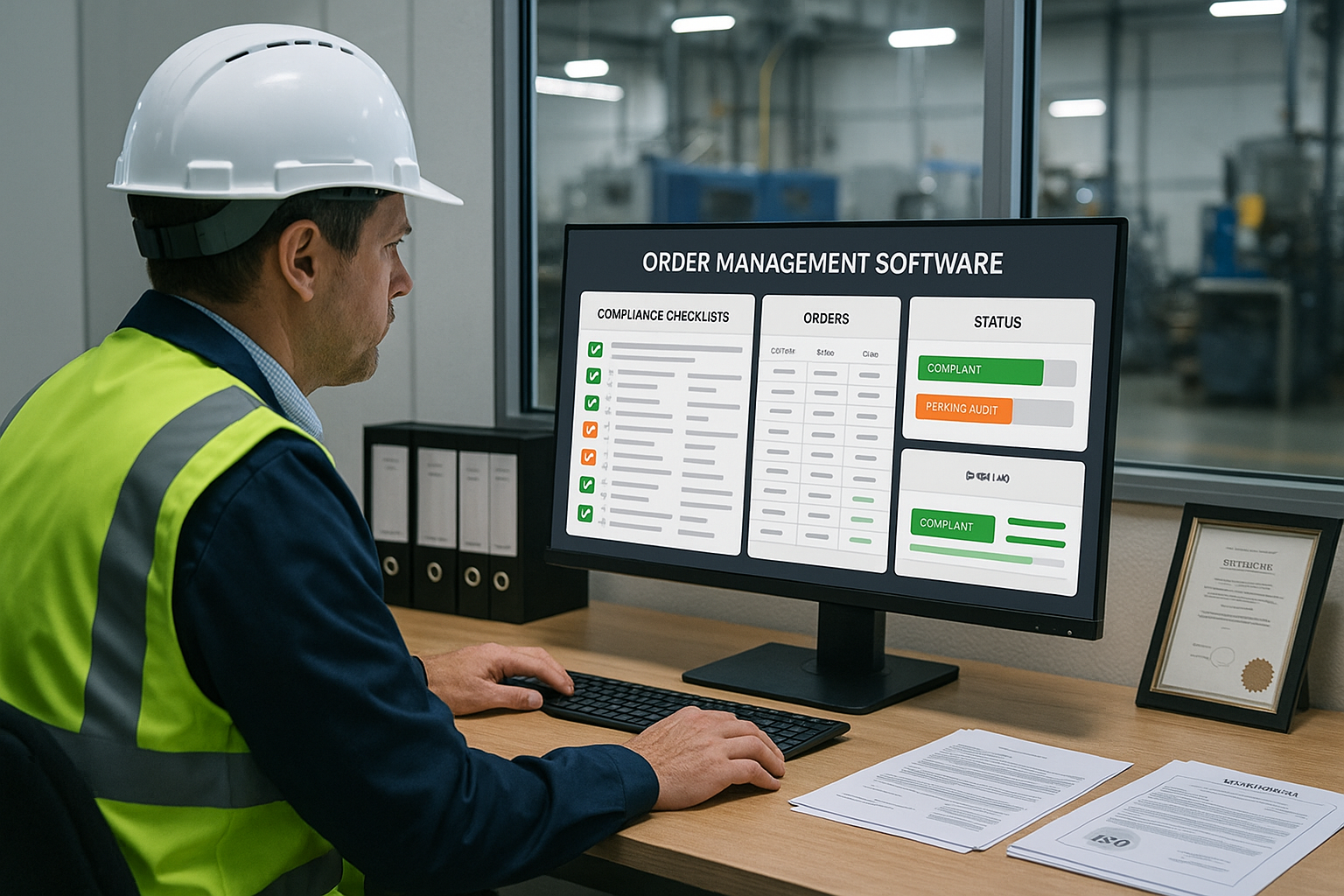Compliance in manufacturing is not just a requirement — it’s a necessity. Whether it’s tax regulations, quality standards, traceability rules, or industry-specific mandates, manufacturers must adhere to strict guidelines to avoid penalties and maintain trust. The right tools can make all the difference. That’s why manufacturers are increasingly adopting bulk order booking software to streamline compliance across their operations.
By embedding compliance checkpoints directly into the order process, businesses can prevent errors, reduce manual oversight, and maintain audit-ready documentation — all while increasing speed and efficiency.
Why Compliance is Critical in Order Management
Manufacturers deal with multiple layers of regulatory expectations:
- GST/VAT, excise duties, and regional tax laws
- Country-specific packaging and shipping standards
- Quality certifications and ISO documentation
- Client-specific delivery terms and SLAs
- Secure handling of sensitive customer data
Without automation, keeping up with these requirements is complex and time-consuming. Manual systems leave room for error — which often results in fines, shipment delays, or damaged client relationships.
Key Compliance Functions Enabled by Order Management Software
1. Built-in Approval Workflows
Manufacturing booking software allows businesses to define custom workflows that enforce compliance steps before an order proceeds. For example:
- High-value orders require finance team approval
- Export orders trigger documentation checks
- Orders with regulated materials are flagged for safety officer review
These checks happen automatically, ensuring that no step is missed.
2. Auto-Validation of Regulatory Data
The software can auto-check fields like:
- Tax identification numbers
- Required certifications
- Country-of-origin declarations
- Product-specific regulatory codes (e.g., HS, FDA, BIS)
This validation ensures accuracy before invoices are generated or shipments are scheduled.
3. Centralized Document Management
Most bulk order management software for manufacturers includes document attachment features. You can store:
- Purchase orders
- Client-specific agreements
- Quality test reports
- Shipping and export documentation
- Regulatory certificates
This makes audit preparation seamless and ensures nothing falls through the cracks.
4. Client-Specific Compliance Customization
Some clients may require particular formats, terms, or compliance checks. The software can apply customized rules per client profile, including:
- Predefined SLAs
- Special invoice formats
- Customs documentation preferences
- Specific QC requirements
Your teams no longer need to remember these manually — the system enforces them automatically.
5. Traceability Across Order Lifecycle
From order creation to delivery, every action is logged. You can trace:
- Who approved an order and when
- Which product lot was dispatched
- What batch was used in production
- When and how quality checks were performed
This traceability is essential in audits or client disputes.
6. Secure Data Handling
When integrated with a b2b ecommerce platform, order systems also handle sensitive client data. Secure encryption, role-based access, and audit trails help maintain data privacy standards like GDPR and ISO 27001.
7. Real-Time Alerts and Compliance Reporting
Managers can receive automated alerts for:
- Missing certifications
- Orders pending approval beyond set limits
- SLAs at risk of violation
- Outdated regulatory formats being used
Reports can be scheduled or generated on-demand to stay on top of performance and risk.
FAQs :
Q. Can I enforce different compliance steps for different order types?
A. Yes. Modern systems allow flexible workflows that change based on order type, client, region, or value.
Q. What kind of documents can I store in the system?
A. Everything from contracts, QC reports, to export declarations can be stored and linked to specific orders.
Q. Does this help with ISO and other certifications?
A. Absolutely. Digital logs and documentation make it easier to comply with ISO, FDA, and similar audits.
Q. Can compliance be automated for international shipments?
A. Yes. Many platforms auto-fill HS codes, include export documents, and apply tax rules by destination country.
Q. What happens if a compliance step is skipped?
A. The system can block the order from progressing or send alerts to responsible teams, minimizing risks.
Staying compliant in manufacturing isn’t optional — it’s critical for sustainable operations and customer trust. With smart manufacturing booking software, compliance becomes a built-in part of your process, not an afterthought.When connected to your b2b ecommerce software, this compliance framework starts at the order source — ensuring that clients also play by the rules. The result? Fewer errors, faster audits, and smoother order execution. In today’s regulatory environment, compliance is not just about avoiding mistakes — it’s about gaining a competitive edge.
